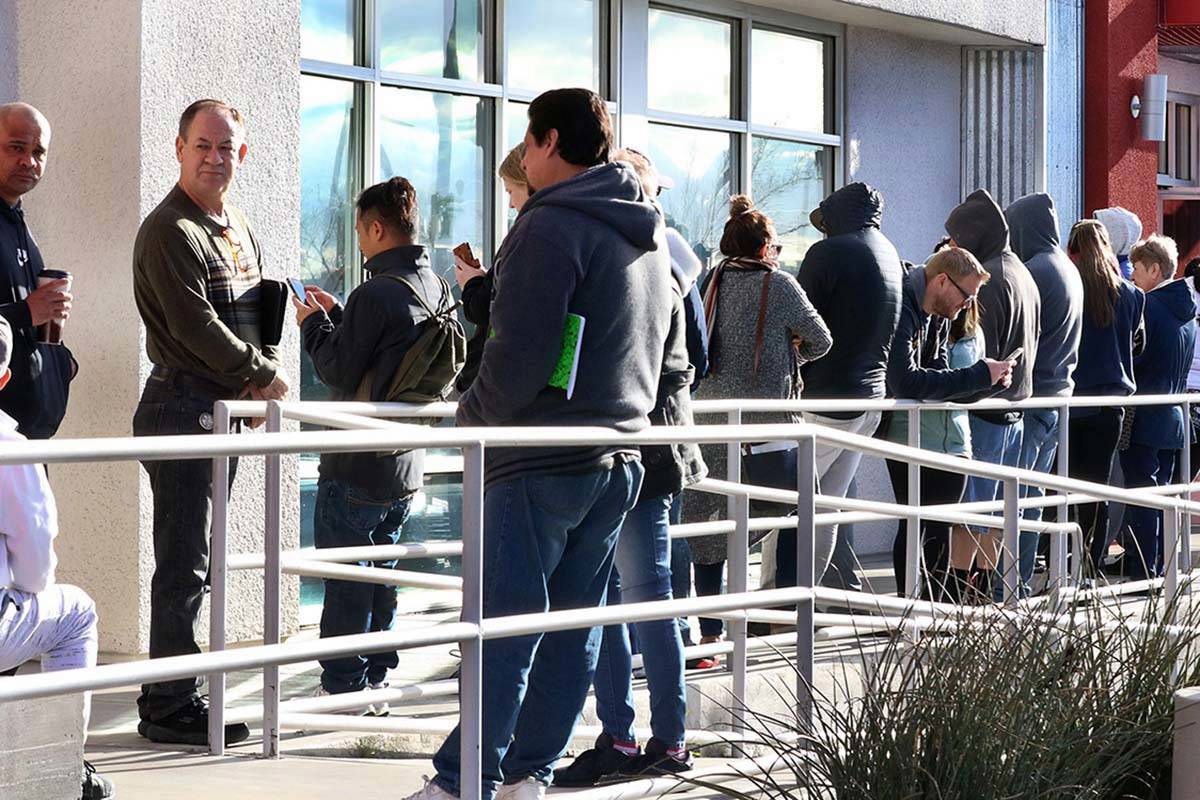Thousands of Las Vegas Casino Workers Remain Furloughed, and Nevada Unemployment Fund Out of Money
Posted on: December 18, 2020, 10:44h.
Last updated on: December 18, 2020, 02:34h.
Tens of thousands of Las Vegas casino workers remain furloughed, and Nevada says its unemployment fund has run dry.

The Nevada Department of Employment, Training and Rehabilitation (DETR) revealed this week that the insurance trust fund used to pay out unemployment claims has a balance of $0. The account had $760 million in June, but ongoing filings due to COVID-19, which has devastated gaming and leisure hospitality, have seen that money dispersed.
Claimants fear not, however, as Nevada is borrowing funds from the federal government to pay unemployment. The Silver State has already been loaned $14.57 million in unemployment money through Title XII of the Social Security Act.
Nevada’s unemployment rate dipped 1.8 percentage points from October to 10.1 percent in November. That’s still substantially higher than the national 6.7 percent unemployment rate.
November 2020 unemployment in the Silver State is also 6.7 percent higher than November 2019.
Laboring Times
The US Bureau of Labor Statistics reports that approximately 304,400 people are currently employed in the Nevada gaming industry. That’s down 13.9 percent compared with November 2019.
Nevada casinos continue to be limited to 25 percent capacity on their gaming floors. Governor Steve Sisolak (D) recently extended the gaming regulatory condition through January 15, 2021.
As of November, there are more than 21 percent fewer gaming industry workers employed in Las Vegas. The industry’s workforce totals 229,400, or roughly 75 percent of the statewide figure. Las Vegas casinos laid off 1,900 workers in November.
The state running out of unemployment money could hurt businesses in the future, as they will likely be on the hook to help repay the federal loans.
I think there is a really good chance of an unemployment insurance tax hike to pay those loans,” Thoran Towler, CEO of Nevada Association of Employers, told the Las Vegas Review-Journal.
“There were significant unemployment insurance tax decreases over the last few years because the fund had amassed so much ‘surplus’ during a long economic growth period. There was no increase this year due to the pandemic, but a raise next year is likely,” Towler added.
Unemployment Tax Rates
In Nevada, a business’ unemployment insurance (UI) tax rate is dependent on the company’s history with claims. A potential (UI) tax increase would vary by industry and employer.
With casinos responsible for the greatest number of UI claims in 2020, as gaming is the largest industry in Nevada, the operators could be on the hook for the largest unemployment tax hike.
New employers in Nevada initially pay a 2.95 percent UI tax on their workers’ wages. Once the employer has a qualified payroll history, the employer will receive an “experience rating” UI tax rate.
Each December, employers receive a Notice of Employer’s Contribution Rate that advises them of their UI tax rate for the next year. The rate, DETR says, is calculated based on accumulated taxes paid, benefits charged, average taxable wages for the prior three years, and the balance of the UI trust fund, which, as previously noted, is $0.
Related News Articles
Las Vegas Sands, Wynn Surge as Macau Ends China Travel Quarantine Policy
Most Popular
Sphere Threat Prompts Dolan to End Oak View Agreement
MGM Springfield Casino Evacuated Following Weekend Blaze
This Pizza & Wings Costs $653 at Allegiant VIP Box in Vegas!
Atlantic City Casinos Experience Haunting October as Gaming Win Falls 8.5%
Most Commented
-
VEGAS MYTHS RE-BUSTED: Casinos Pump in Extra Oxygen
— November 15, 2024 — 4 Comments -
Chukchansi Gold Casino Hit with Protests Against Disenrollment
— October 21, 2024 — 3 Comments -
VEGAS MYTHS RE-BUSTED: The Final Resting Place of Whiskey Pete
— October 25, 2024 — 3 Comments
















Last Comments ( 2 )
Tap into the dispensary money, or any other fund they got sitting there wit money in it. People need and deserve help after losing there jobs.
What's going on with the dispensary money